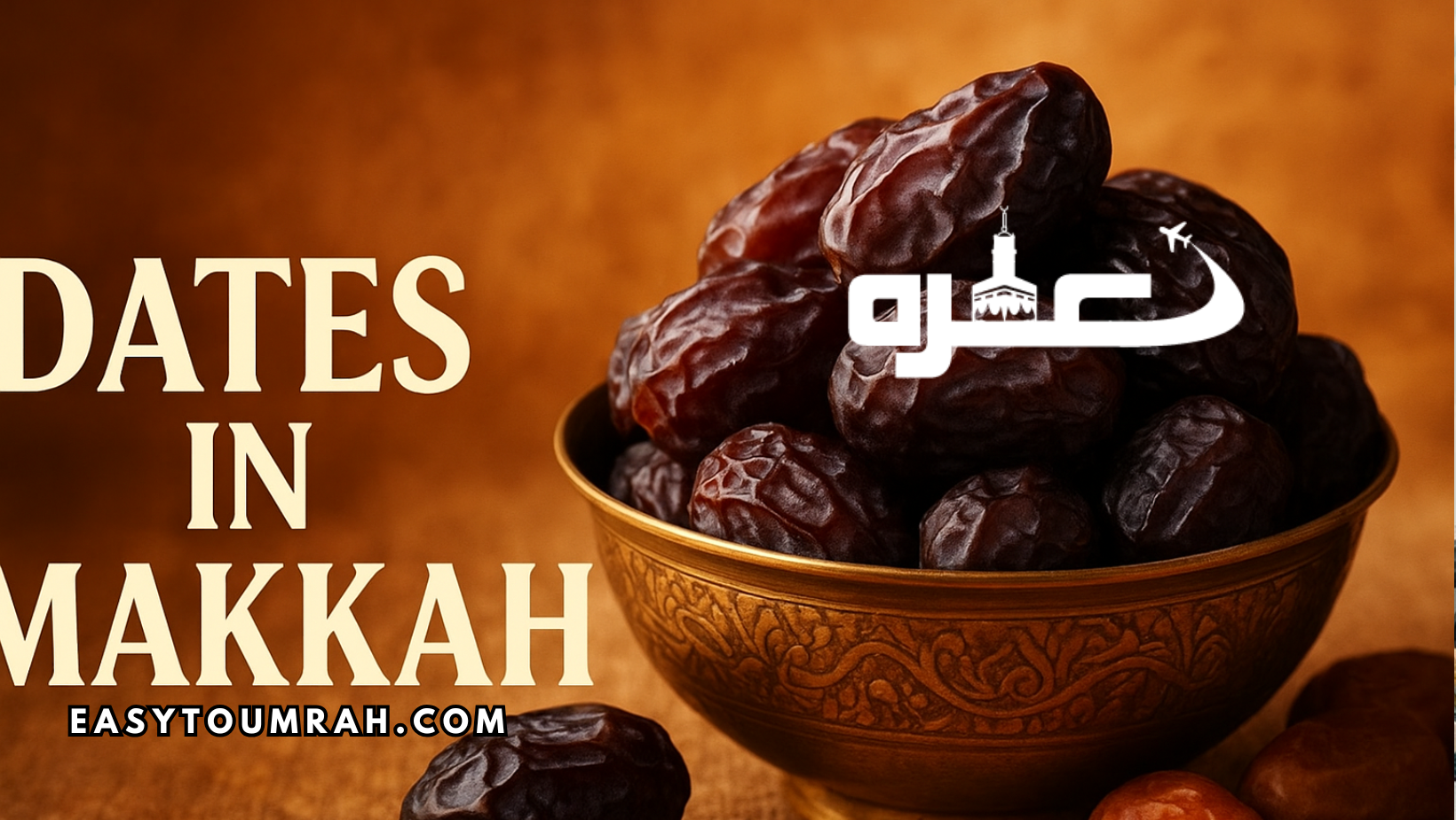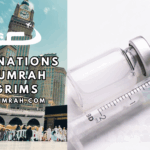Dates in Makkah — Culture, Commerce & Investment Potential
Introduction
Makkah (Mecca), as one of the holiest cities in Islam, holds not only religious significance but also a rich culinary and agricultural heritage. Among its most celebrated products are the dates of Makkah — in particular, the revered Ajwa variety. This article explores the many facets of dates in Makkah: their history, varieties, cultivation, markets, challenges, and the intriguing intersection with business, investment, and entrepreneurship in the region and beyond.
By weaving in themes like business funding in UAE, investing in early stage startups, entrepreneurship support entities, and investing in business, we’ll also uncover how the date industry can serve as fertile ground for entrepreneurship and regional investment.
1. Historical & Cultural Significance of Dates in Makkah
1.1 Religious & Traditional Importance
-
Ajwa dates hold a special place in Islamic tradition. It is narrated that the Prophet Muhammad (peace be upon him) recommended consuming dates, especially Ajwa, for their health and spiritual benefits.
-
Because pilgrims from across the world visit Makkah, the demand for premium dates (as gifts or souvenirs) is elevated, connecting the sacred with commerce.
-
Over centuries, date palms have been central to the economy and sustenance of the Arabian Peninsula. They are more than a fruit — they are a symbol of hospitality, endurance, and tradition.
1.2 Varieties of Dates Found or Sold in Makkah
While Ajwa is the signature variety associated with Makkah/Medina, there are multiple date types commonly retailed in Makkah markets:
-
Ajwa — dark, soft, somewhat chewy, often priced at a premium.
-
Sagai / Safawi
-
Khudri
-
Sukkary / Sukary
-
Barni / Barniyah
-
Rutab / Fresh soft dates
Local vendors and specialty shops in Makkah feature vacuum-packed gift boxes, infused varieties (e.g. Ajwa with saffron), chocolate-coated dates, and stuffed dates. For instance, Siafa Dates (a Saudi brand) offers Ajwa with saffron, Mabroom, Khudri, and more in various packaging forms.
1.3 Market & Pricing Trends
-
Many pilgrims report to shop for Ajwa dates in the basement of the Clock Tower, or in shops near the Haram. According to traveler forums, Ajwa in Makkah can cost anywhere from ~SAR 30 per kilogram to higher — though many note it tends to be more expensive in Makkah compared to Medina.
-
The prestige of the city, logistics, packaging, and branding all contribute to price premiums.
2. Cultivation & Supply Chain of Date Palms in Saudi Arabia
2.1 Agricultural Landscape
-
Saudi Arabia is among the top date-producing nations globally, with vast date palm cultivation in the Hejaz, Al-Qassim, Eastern Province, and other oases.
-
Date cultivation requires arid climate, adequate groundwater or irrigation, and traditional agricultural know-how (pollination, pruning, pest control).
2.2 Logistics, Processing & Packaging
-
Once harvested, dates must be cleaned, sorted, possibly dried, and packed (vacuum-sealed or controlled atmosphere) to maintain quality, especially for exports.
-
Post-harvest losses (spoilage, pests) are a significant challenge in date agriculture.
-
Cold chain or climate-controlled storage is essential for export quality, especially for premium varieties.
2.3 Domestic & International Distribution
-
Locally, dates are distributed through retail shops in Makkah, Madinah, Jeddah, and across Saudi cities.
-
Internationally, dates from Saudi Arabia (including Ajwa and other varieties) are exported to Asia, Europe, Africa, and Gulf markets.
-
Branding and origin labeling (e.g. “Makkah Ajwa”) often allow for premium pricing in niche diaspora or halal food markets overseas.
3. Market Opportunities & Business Potential
The date business, especially in a city like Makkah, offers intriguing avenues for entrepreneurship and investment — especially when paired with modern business methods, digital platforms, value-added products, and cross-border trade strategies.
3.1 Niche & Value-Added Products
-
Premium gifting packages: luxury boxes, dates with nuts or chocolate coating, limited edition varieties (e.g. saffron-infused).
-
Functional or fortified dates: e.g. dates with added nutrients, probiotic treatments, or health branding.
-
Export branding & e-commerce: building global e-commerce brands carrying “Makkah dates” to Muslim communities and gourmet consumers.
-
Tourist retail & subscription models: offering pilgrims curated date gift boxes, subscription boxes for diaspora, or airport/clock tower specialty shops.
3.2 Entrepreneurship, Startup Model & Innovation
-
A startup could build a vertically integrated model: from farm partnerships in Saudi, to sorting/processing, to brand + direct-to-consumer marketing.
-
Technology: digital traceability, food safety certifications, blockchain for provenance, advanced shelf-life extension, AI logistics optimization.
-
Partnerships with entrepreneurship support entities (incubators, accelerators in Saudi or UAE) can help with go-to-market support, mentorship, and network access.
3.3 Investment & Business Funding Aspects
-
Investing in business: The date sector is not limited to agriculture — the agri-food stack (processing, branding, logistics, retail) is investable.
-
Business funding in UAE / GCC: Regional funds or venture capital in UAE may co-invest in innovative agri-food or halal food startups in Saudi / Makkah. The GCC venture landscape is active: Saudi and UAE account for the lion’s share of startup deal volume in the region.
-
Investing in early stage startups: A date-centric agri-food startup may qualify for seed or pre-seed funding, especially if it brings differentiated tech or branding.
-
Entrepreneurship support entities: Entities such as accelerators, sovereign-backed funds, or foodtech incubators in the GCC could support ventures in the date sector (mentorship, grants, co-investment).
3.4 Challenges & Risks to Address
-
Supply volatility: crop failure, pests, climate change, water scarcity.
-
Regulatory & certification compliance: food safety, export standards, halal certifications, packaging rules.
-
Competition & branding: many countries produce dates (e.g. Iran, Tunisia, UAE), so differentiation is essential.
-
Logistics & perishability: ensuring cold chain, reducing spoilage, managing shipping costs.
-
Currency, trade barriers, tariffs in export markets.
However, with careful risk mitigation, a well-positioned business in dates — especially those associated with Makkah/holy provenance — can attract both consumer interest and investor attention.
5. FAQs: (for SEO snippets / featured answer candidates)
Q1: Why are Ajwa dates associated with Makkah (or Medina)?
A: Ajwa dates are traditionally cultivated near Medina and are deeply venerated in Islamic tradition. While Medina is the origin, Makkah shares in the pilgrim trade of Ajwa, and many shops in Makkah sell them as sacred gifts.
Q2: Can one start a date business in Makkah as a non-Saudi entrepreneur?
A: Yes — through partnerships or joint ventures with local growers, corporate sponsorship, or setting up in SEZs or free zones. Local regulations, foreign ownership rules, and agriculture licensing must be studied carefully.
Q3: How much funding is available regionally for agri-food or agritech ventures?
A: In 2025, Saudi Arabia and UAE lead in regional venture funding, with billions flowing into tech, fintech, foodtech, and beyond. Many entrepreneurship support entities, accelerators, and sovereign funds are active.
Q4: Are there acceleration programs or entrepreneurship support entities in Saudi for agribusiness?
A: Yes. Saudi Vision 2030 emphasizes agricultural diversification, and several incubators, government funds, and agriculture-focused VC arms exist. One prominent fund is Nama Ventures (though generalist) which invests in early-stage tech across MENA.
Q5: What are key success tips when launching a date export brand from Makkah?
A: Focus on provenance branding (Makkah / holy dates), rigorous food safety & certifications, e-commerce presence, packaging innovation, logistics partners, and aligning with halal / Islamic markets globally.
Conclusion
The dates of Makkah are far more than a traditional food item — they are a cultural icon, a pilgrimage symbol, and a potential nexus for modern business and investment. By combining traditional agricultural heritage with smart branding, tech-enhanced supply chains, and regional venture support, entrepreneurs can tap into a promising space.



